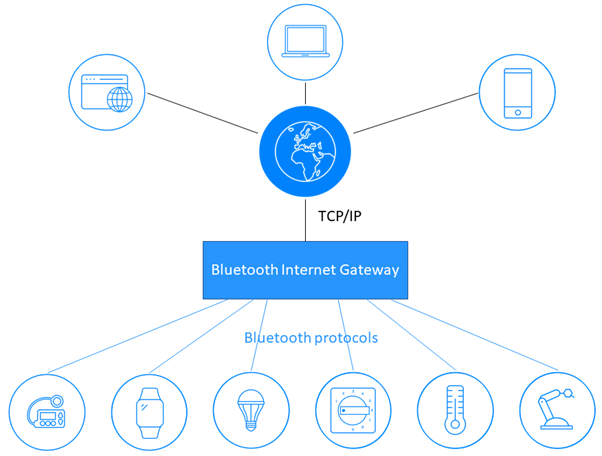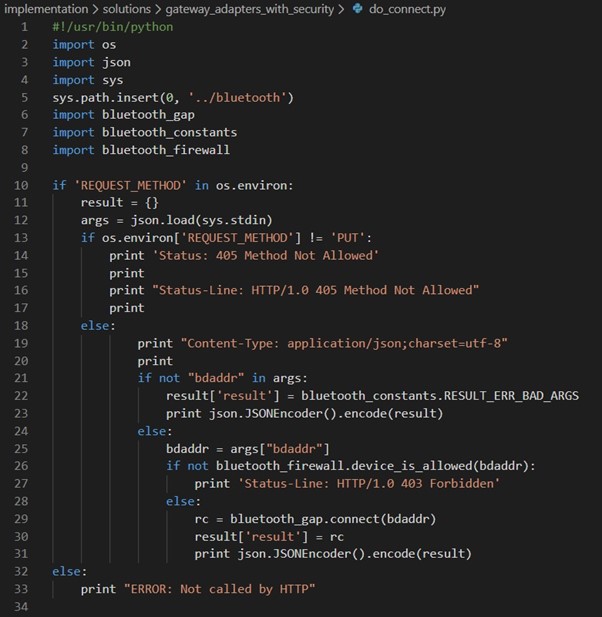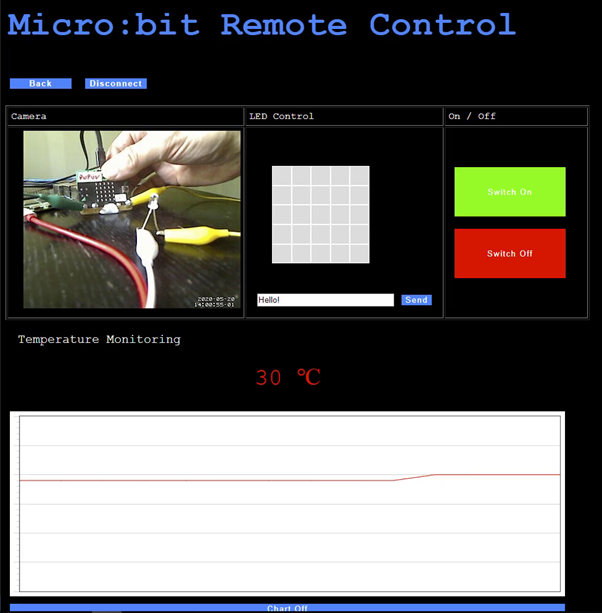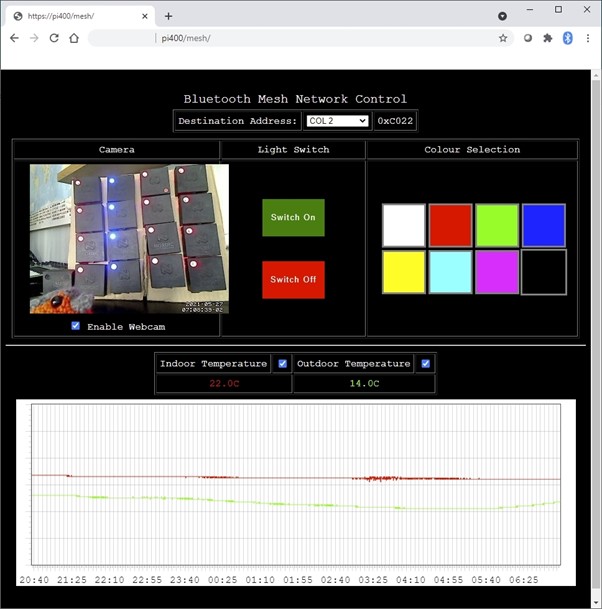
According to the ABI report Installed Base of IoT Devices by Connectivity Technology, published in 2020, Bluetooth® technology is used in 38 percent of all Internet of Things (IoT) devices, while Wi-Fi is in 32 percent, and Cellular communications technology is used in 19 percent. It’s fair to say that Bluetooth technology is one of the key enablers of the IoT.
But how exactly can Bluetooth devices be integrated with the internet and so be part of an IoT solution? The answer involves a key component of any Bluetooth IoT solution architecture known as a Bluetooth internet gateway.
A Bluetooth internet gateway supports Bluetooth technology and one or more TCP/IP-based protocols. It can translate requests received over TCP/IP from the internet into corresponding Bluetooth interactions and vice versa. A gateway is usually classified as middleware because it sits in between two other tiers of a multi-tiered architecture, providing services to the components on either side of it.
Solution Architects, Developers, and Operations Personnel
Gateways can be complicated entities. They handle multiple communications protocols, are able to translate between otherwise incompatible technologies, and consist of many component parts, both hardware and software. There are no standards governing Bluetooth® internet gateways and project teams requiring one have a choice of either buying a ready-made commercial product or creating a gateway based on custom requirements.
Solution architects need to understand the subject of Bluetooth internet gateways, either to inform commercial product evaluation or the architecture of bespoke solutions.
Software developers need to understand Bluetooth internet gateways to be able to develop components of custom gateways or to be able to develop applications which use a gateway or both.
And in many cases, operations personnel need to understand how a Bluetooth internet gateway is secured and how it can be scaled.
There’s something for everyone on this subject.
The Bluetooth® Internet Gateway Study Guide
The Bluetooth Special Interest Group (SIG) is committed to providing educational resources for people in technical product and solution development roles such as software engineers and architects. We have a series of resources known as study guides, which are designed for self-paced study and typically include one or more hands-on projects to help consolidate theoretical knowledge and to reveal and explore practical issues and techniques.
Our collection of study guides includes the Bluetooth® Internet Gateway Study Guide. Version 2.0 has just been released and adds a new module which explains and explores internet gateways for Bluetooth Mesh networks.
In summary, V2.0 of this study guide:
- Illustrates the options for accommodating different types of Bluetooth Low Energy (LE) devices in an internet gateway solution
- Includes a hands-on project to design and build a working prototype Bluetooth internet gateway for Bluetooth LE peripherals
- Includes a hands-on project to design and build a working prototype Bluetooth internet gateway for Bluetooth Mesh networks
- Explains and explores the following topics throughout:
- Logical and physical architectures
- Component selection, development, and integration
- Gateway adapter code development and testing
- Security
- Scalability
- Includes a working prototype gateway web application which acts as a general-purpose Bluetooth LE device explorer and acts as an example for review and self-study
- Includes incomplete gateway web applications for use with connected LE Peripheral devices or devices in a mesh network which you will finish by writing missing gateway interaction code
- Explores and explains the issues and options for creating a scalable Bluetooth internet gateway solution
The hands-on projects are particularly useful. In the first of several, you will create a working prototype Bluetooth internet gateway which runs on a Raspberry Pi and provides access to Bluetooth LE peripheral devices which are in range. This will involve using a combination of off-the-shelf software components and the integration of custom-developed software adapters which you will code, with guidance given all the way.

Figure 1 – Gateway adapter code
You will go on to use and learn from a sample web application which uses the gateway called Explore Blue and then complete the code for a second web application which allows you to remote control a BBC micro:bit from a web browser.

Figure 2 – The micro:bit controller gateway web application
Version 2.0 of this study guide also includes hands-on projects which guide you through the process of designing and developing a gateway for mesh networks and a web application that uses the gateway.

Figure 3 – A web application for controlling lights and sensors in a mesh network via an internet gateway
For each of the types of gateway, the study guide illustrates examples of the types of security issue that gateway implementation should address. It also provides hands-on experience in some of the ways in which the main issues might be resolved.
Download the Bluetooth Internet Gateway Study Guide Today
The Bluetooth® Internet Gateway Study Guide should be a BIG help (get it?) in getting you up to speed with this important IoT subject and is available for download.